C.J. Moseley's Blog, page 144
September 8, 2014
gameraboy:
1932’s Dynasphere! A one-wheel four-seater. Via…




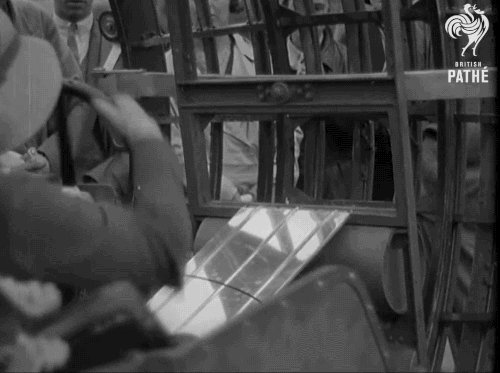


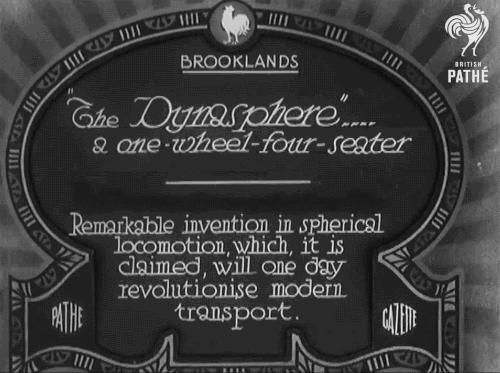
1932’s Dynasphere! A one-wheel four-seater. Via British Pathé
The Dynasphere, didn’t Tank Girl have one of these?
September 7, 2014
Yup that label says Brontosaurus. The dinosaur that never…
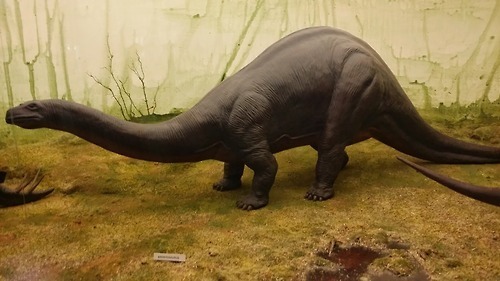
Yup that label says Brontosaurus. The dinosaur that never existed.
It still makes me chuckle when I go to Liverpool World Museum and see this in the display. Years ago I raised it with the staff, and they told me the dinosaur display was meant to be changing during the renovation. It didn’t. Honestly, if I worked there I’d have the label maker out on day one.
It’s a model of an Apatosaurus…
September 6, 2014
asylum-art:
Sensational recycled clothing art byGuerra de La…
Sensational recycled clothing art byGuerra de La Paz
guerra de la paz is the collective name for artists alain guerra and neraldo de la paz, two cuban artists living in miami. the two create sculptural works and photographs which...
September 5, 2014
World-building 101: Playing God For Beginners
[caption id="attachment_12343" align="alignright" width="300"]
 World-building usually begins with putting pen to paper[/caption]
World-building usually begins with putting pen to paper[/caption]World-building (or worldbuilding for those with a hyphen allergy) is the process (and game) of imagining a whole new world, although the same processes build universes and smaller realms. It is often used by role-players to create a unique Roleplaying game experience, but the same techniques and skills in the hands of authors, screenwriters and playwrights create new stories all the time.
For me world-building is one of the most fun aspects of Fantasy and Science-Fiction, good world-building can make an unreal place believable, granting the reader (or player) an easier time in suspending their disbelief.
There are many ways to build worlds and over this series I plan to talk about the methods I use as well as the techniques that others have used in their work, in the hope that something in it will be useful to you.
What is a World?
I'm guessing some of you are laughing at the question, but do you really know? Just take a look at dictionary. com's definition; sure you knew it meant planet, but did you remember that it also means the people on it? Or that parts of the cultures of that planet are worlds of their own? And just take a look at the etymology, it really means wer-ald, that's the same 'wer' as in werewolf by the way, it means man, in this specific case wer-ald means 'age of man' .
So when I talk about world-building I might mean any of these things, but actually I mean them all. Some people will tell you that world-building is a waste of time, that it is something that only fantasy nerds do, or it is only worth while for building series. A lot of these people will also tell you that in a political thriller it is essential to draw out the political alliances and connections between the characters, or to map out your murder mystery completely before you start writing, so that you know what all the clues you are hiding are. Both of which are just examples of world-building for a specific type of story.
5 World-building features for first time gods
Worlds are complex things and have many components that combine to produce the result.
[caption id="attachment_12410" align="alignleft" width="300" class=" "]
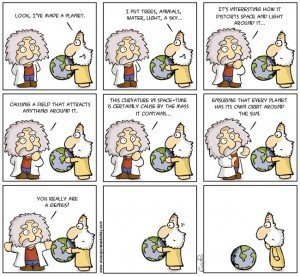 Not every world-builder understands the fundamentals. From Onceuponasaturday.com[/caption]
Not every world-builder understands the fundamentals. From Onceuponasaturday.com[/caption]Fundamentals: Most fictional worlds have rules very similar to our own, but in fantasy and some science-fiction you find worlds that have very different rules of Physics (and of course Chemistry and Biology). Changes often add, in Fantasy at least, the ability to hybridise animals easily or allow magic; similarly Science-Fiction (especially Space Opera) may ignore fundamental laws such as those of Entropy, Relativity or Quantum Mechanics to allow perpetual motion, faster than light travel or matter teleportation. You can leave the fundamentals alone in most fiction, they don’t change from he real world.
Geography: Changes to fundamentals of a universe can change how geography should work, just as masses of Unobtanium ore cause mountains to fly. You can plan the geography of the planet, or just a region. Geography has rules that you can spend a lot of time studying to make realistic places, you can even make fantastic places (Earth has more than a few), if you create the right circumstances. Some Fantasy writers start by drawing a map (Tolkein started it), often with little regard to real world concepts like rain-shadows, jet streams or oceanic currents, this can be effective if they are clever or lucky; other writers just throw together geography and leave the map drawings to the fans (Sir Terry Pratchett’s approach). Both techniques have their merits, but I like a map, even if I don’t want the reader to see it. I feel it helps me keep the world straight. If I’m writing a real world story set in London I’ll keep a map of London to hand, the same applies to a fantasy city that I’m writing about, or a space-port in Sci-fi.
[caption id="attachment_12413" align="alignright" width="300"]
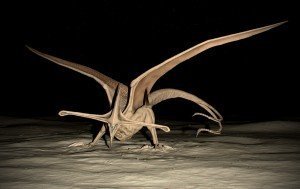 Yeah, how did you evolve anyway?[/caption]
Yeah, how did you evolve anyway?[/caption]Ecology: Landscape plus life equals ecology. What animals live in the world, what roles do they fulfil, which niches are they evolved to fit? Again, there are rules on Earth, that Evolutionary Biologists like to claim are universal, which might be a valid extrapolation from a single point of data, but seems unlikely. Putting aside the issues of anthropocentrism inherent to such a belief, these rules tell us about the numbers and types of different animal roles, which make it very unlikely a photo-allergic, flying carnivore would evolve on a planet that only had darkness for a few days every few years, and the only other life seen is bioluminescent, no matter how cool they may sound. Of course, if it is done well, we’ll still buy it, but it is nice when the ecology actually makes at least some sort of sense.
[caption id="attachment_12415" align="alignleft" width="225"]
 This sort of monolithic culture okay, the other not so much. (Image from Propnomicon.com)[/caption]
This sort of monolithic culture okay, the other not so much. (Image from Propnomicon.com)[/caption]Culture: Some forms of life occasionally get smart, on Earth it was the primates, who evolved into us. Smart life forms have culture, they have beliefs and mores, languages and laws, religions and sins. They may even have sciences, arts, and technologies, in fact anything people might have it is fair to say they should have. Often in Fantasy there is little to distinguish one group of humans from another, the writer drawing more differences between the elves and the dwarves than individual humans. Science-fiction is often worse, building alien cultures that based around aspects of a culture, such as proud warrior races (ignoring the farmers that must produce the food and what, by the way is the races favourite dish?) or huge brained scientific races that can’t grasp a simple hormone cascade. We call these ridiculous “everyone is the same” societies Monolithic Cultures. Sometimes Monolithic Cultures make sense because of the Environment (a water wasting, rhythmic walking, pacifist Freman is dead Freman) and sometimes they make sense because of a certain story that must be told, (like the Monolithic Drow culture which largely exists so that Drizzt Do’urden can walk away from it), but normally a Monolithic culture is a sign of laziness in the world building akin to racial stereotyping in the real world, sure the stereotypes exist, but no character should actually conform to the stereotype. Also don’t forget those things that go along with Culture, not just art and technology, but sub-cultures and politics. Political parties are just powerful sub-cultures (and don’t let them tell you otherwise), and what are the counter-cultures that the rebels in the society want to join?
History: Cultures change not just with geography, but also with time. Taking the example from medieval Europe if you rode a horse all day, you not only wouldn’t understand the people where you were at the end of the day, you wouldn’t be dressed like them and would be easily distinguished from them. However, only a few hundred years earlier there was a uniform culture imposed across those same lands, everyone spoke Latin and they largely dressed the same (trousers optional). Events happen, Kingdoms rise and Empires fall, fashions change, wars devastate and populations migrate. Worlds change, that said you can have long, vast stretches of history that are all about stability. Chinese history can appear awfully static, culturally, from the outside, but a quick delve into the history soon reveals civil wars, political overthrows, technological changes, exterior pressures in the form of invasions and trade and changes in art and philosophy within this so-called ‘static culture’. History is a funny thing, if you are a fresh, new culture you will make a big deal out of the little history that you have (USA - I’m looking at you, you blinked when you read ‘only a few hundred years earlier’ earlier didn’t you); but old, tired cultures will do their best to simplify, tidy and sweep the worst bits under the carpet (every Western European country). That said even young cultures try their best to forget the worst atrocities from the past, and many older cultures will cling to past glories long after they are irrelevant (England and Association Football’s World Cup, perhaps?).
That’s just the start
There are finer details and there may be more points to discuss later, but those are the first 5 points worth thinking about for any world. If you are world-building these are the things to start thinking about. I will try to detail each one later in a separate post, and detail each of the pitfalls of each part, and there is a lot more to say on the processes that other authors have used. There is also at least a whole post on how an author/GM should prepare and use a world-building bible, and how you can tell when to stop building and start writing/playing.
Lots to do, I’d better get on... Next time I’ll talk about planning and direction, are you a Top-Down broad strokes builder, or a detail orientated Bottom-Up deity?
Time for a new project
I’ve decided before moving into 2nd Draft of Ironmaster to give myself a break from Steampunk for a bit and so I’m planning the next novel, which I hope will be a YA novel series, based in a post-apocalyptic world (at least that’s the plan my fifteen year-old self had decided on, changes will be made).
As usual I will be using T13to run a world-building game, but this one is going to be a little…
Time for a new project
As usual I will be using T13 to run a world-building game, but this one is going to be a little different, but I'll get to that in a minute. A friend of mine asked me some questions about world-building and has decided to pop around to discuss it later in the month face to face, which means I'll have some posts that will relate to that project too.
Because the world-building will be quite huge part of my life for a while, I plan to write some articles on my methods of world-building over the next few months, using examples from movies, RPG settings and books similar to the science in science-fiction series (which I might bring back soon in a smaller package for tighter focus). These will be cross posted for roleplaying games refs as well as authors as they are useful to both. So expect some additions to the T13 rules soon to reflect PC world-building, and perhaps even leading toward some Ref-free gaming rules for players.
Meanwhile, I'm working on a little time-travel short story for a Goodreads group and have the first world-building game for the new series set up for tonight (at least I think that's what we are doing, players can be fickle and characters doubly so).
Since the series is futuristic science-fiction we will be starting play in the real world, so initially no preparation is really necessary for the session, which will largely be character creation (I still need to finish the character creation page and get that working properly as a wordpress plugin- ho humm).
This time the players will not be playing normal characters from the beginning, their characters will reincarnate throughout the history of the universe so that we can jump ahead in time and create the new universe's history together. I have no idea exactly where we will end up, which is quite exciting, although I do know the nature of the apocalypse will be a “War of the Worlds” inspired scenario with an huge dose of Larmarkian evolutionary theory thrown in for effect.
Sign up to get email updates by scrolling down on mobile or dragging the mouse pointer over my head on a desktop, and you can follow everything that happens.
Firefox’s new start page is a gateway drug to awesome Web literacy

The Mozilla Foundation — who make Firefox — have been doing some really cool things with Firefox’s “start page” (the blank screen you get when you open a new browser tab or window), but this is the coolest: an interactive doodle that invites you to learn to code in the simplest, least-intimidating, most fun way possible.
Writing CSS is not “coding”, and it certainly isn’t learning to “code a web page”. Good idea, shame the browser has sucked the proverbial since about 2005.
September 4, 2014
Muphry’s Law: the inevitability of typos in pedantic proofreading critiques

Muphry’s Law, as formulated John Bangsund of the Victorian Society of Editors (Victorian as in “from the Australian state of Victoria” not as in “pertaining to 1837-1901, the period concurrent with the rule of Queen Victoria”) pertains to the inevitable petard-hoisting that occurs whenever you mention proofreading or editing.
I’m glad it’s not just me
September 3, 2014
Sometimes you see a photo of the wild wood that you just have to…

Sometimes you see a photo of the wild wood that you just have to reblog, this is that photo. I almost expect to see a woodwose or Jack O’Green in the edges of this pic.
September 2, 2014
what-the-hell-is-steampunk:
source
Brilliant steampunk image,…

Brilliant steampunk image, it could be from my next novel!
I can even name the characters… Wonder if any Alpha readers can guess who I’m thinking these two are? Clue: they aren’t a couple in the book, but they do spend time together.
Btw anyone that wants to become one of my Alpha readers and give me feedback let me know and I’ll add you to the Google drive share.



